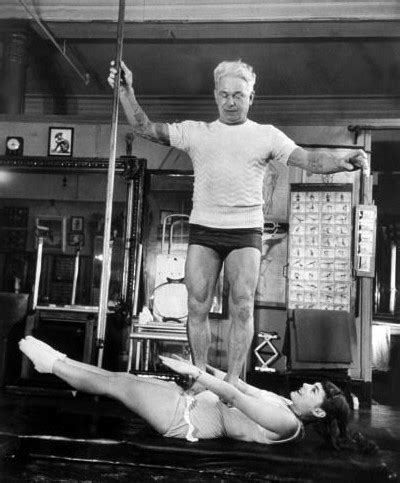A Quote by Samuel Johnson
It is the condition of our present state to see more than we can attain; the exactest vigilance and caution can never maintain a single day of unmingled innocence.
Related Quotes
You cannot attain and maintain physical condition unless you are morally and mentally conditioned. And it is impossible to be in moral condition unless you are spiritually conditioned. I always told my players that our team condition depended on two factors / how hard they worked on the floor during practice and how well they behaved between practices.
At that time, I was still in an experimental stage, trying to blend Western drawing techniques and Chinese brushwork together. It was harder for me back then... But that piece is special and important, because it represents vigilance and innocence; the kind of precious innocence only present at the beginning of a new artistic exploration.
Welfare policies never attain those - allegedly beneficial - ends which the government and the self-styled progressives who advocated them wanted to attain, but - on the contrary - bring about a state of affairs which - from the very point of view of the government and its supporters - is even more unsatisfactory than the previous state of affairs they wanted to 'improve.'
The innocence of those who grind the faces of the poor, but refrain from pinching the bottoms of their neighbour's wives! The innocence of Ford, the innocence of Rockefeller! The nineteenth century was the Age of Innocence--that sort of innocence. With the result that we're now almost ready to say that a man is seldom more innocently employed than when making love.
Trying to maintain a pleasant state and avoid an unpleasant state is actually the cause of sorrow. When you stop resisting, you see that what seems frightening is actually the absolute beauty of reality. When you see that everything is a momentary display of reality, then you stop resisting it. Resistance hurts, only every single time. Love is the state of nonresistance.
The issues which today confront the nation are clearly defined and so fundamental as to directly involve the very survival of the Republic. Are we going to preserve the religious base to our origin, our growth and our progress, or yield to the devious assaults of atheistic or other anti-religious forces? Are we going to maintain our present course toward State Socialism with Communism just beyond or reverse the present trend and regain our hold upon our heritage of liberty and freedom?
We lost our innocence in the Fall, and our turn to it is through the Redemption which was brought about by Christ's death and by our slow participation in it. Sentimentality is a skipping of this process in its concrete reality and an early arrival at a mock state of innocence, which strongly suggests its opposite.





































